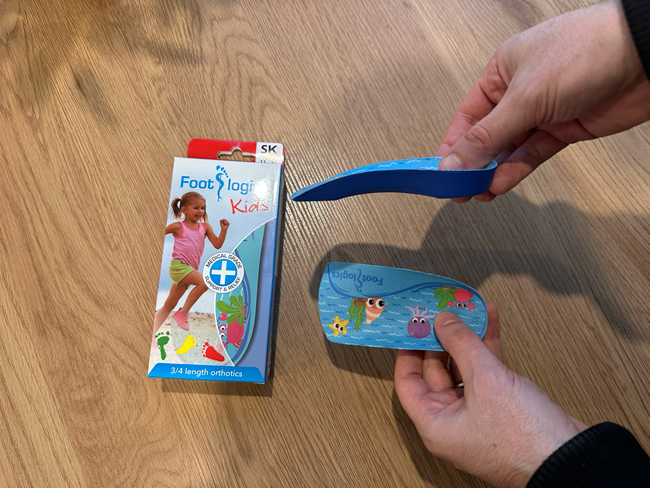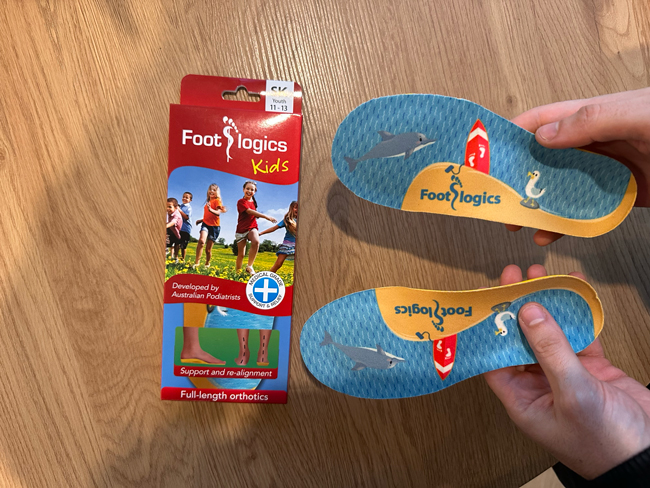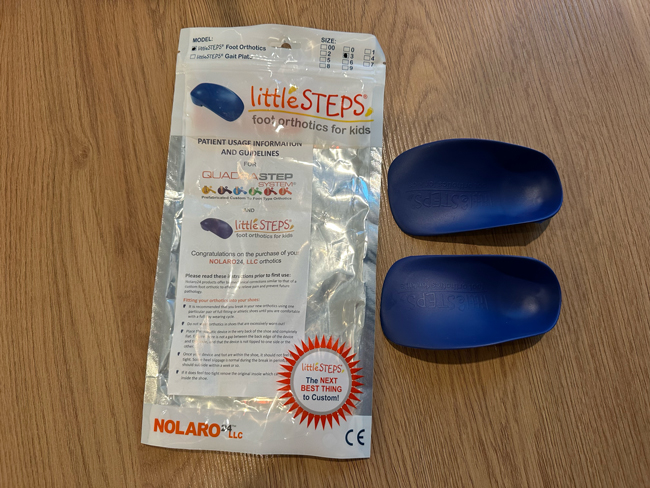With over a decade of experience working in a specialized children’s shoe store, I’ve seen firsthand the incredible impact supportive shoes and orthotics can have on a child’s development. Physical and occupational therapists frequently refer families to our store to find footwear and orthotics that align with their therapeutic goals. Through years of testing various shoes and orthotics, I’ve identified two highly effective orthotics for toddlers with foot conditions that deliver lasting results.
I recommend two orthotics based on your toddler’s pronation. For mild pronation (flat feet with no pain), Footlogics orthotics are ideal. For moderate to strong pronation (visible flat feet and pain), I suggest littleSTEPS orthotics. Both options are listed below.
Orthotics for Mild Cases of Pronation
The main reason why I recommend Footlogics orthotic inserts is that they provide excellent arch and heel support, and at the same time, they are not as invasive as other orthotics. This means that these orthotic insoles allow your toddler’s foot and leg muscles to develop on their own while supporting them.

- Order the 3/4 length Footlogics orthotic inserts for toddlers on Amazon
- Fits toddler shoe size 5 through little kid shoe size 13
- 3/4 length makes it ideal to fit in most shoes
- They can be trimmed to the perfect size using scissors
- It’s not necessary to remove the original insoles of the shoes when fitting this orthotic

- Order the full-length Footlogics orthotic inserts on Amazon
- Fits toddler shoe size 5 up to big kid shoe size 3
- They can be trimmed to the perfect size using scissors if necessary
- You must remove the original insoles from your child’s shoes before placing the orthotic inside the shoes
Orthotics for Moderate or Strong Cases of Pronation
LittleSteps orthotics are perfect for toddlers with moderate to strong pronation. They help guide the foot into a more natural position, reducing strain and improving function, while supporting healthy foot development and easing discomfort.

- Order littleSTEPS® Orthotics from their official website. You must submit a Referral Code to complete your order: JVFCS100121
- It’s not necessary to remove the original insoles of the shoes when fitting this orthotic
- The 3/4 length design makes it easier to fit into various shoe styles
- Take a look at this chart to figure out what size to order based on your child’s shoe size
Bonus Resource: Supportive Toddler Shoes That Fit Orthotics
Choosing the right shoes can enhance the effectiveness of orthotics and contribute to a child’s overall comfort and well-being. To assist you further, I’ve compiled a list of supportive toddler shoes that are compatible with orthotics. This resource aims to simplify your search and ensure your toddler gets the best possible support.
Contact Me for Specific Recommendations
If you have any questions or need guidance on finding the right shoes or orthotics for your toddler, feel free to contact me via email. My passion lies in helping parents understand the importance of the right footwear and providing personalized recommendations based on each child’s unique foot shape and condition. Each child’s needs are different, and understanding these nuances is key to providing the best support.
Common Foot Conditions in Toddlers
Toddler foot conditions can vary from mild to severe, and each may require different approaches to treatment. Common concerns include:
- Pronation: This occurs when the foot’s arch collapses, causing the foot to roll inward. If left untreated, pronation can lead to discomfort, poor posture, and an altered gait.
- Flat Feet: While many toddlers naturally have flat feet due to underdeveloped arches, persistent flat feet may require attention. Monitoring arch development is essential as your child grows to prevent potential issues.
- Toe Walking: Although toe walking can be a harmless habit, it may also signal underlying neurological or muscular conditions. Identifying whether it’s habitual or a sign of something more serious is crucial for appropriate intervention.

My son is 26 month old and he has flat feet problem… I want shoes for him
Hello Kadambari,
Do you know if your son’s feet are narrow, medium, wide, or extra wide? If you don’t know your son’s exact foot shape I suggest that you follow the instructions here: How to Measure Your Kids’ Foot – 2 Simple Steps to Determine Foot Length and Foot Width
I also need to know from which country you are contacting me to check what shoes are available in your area.